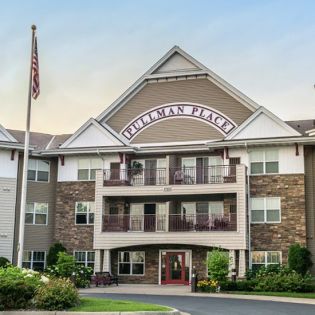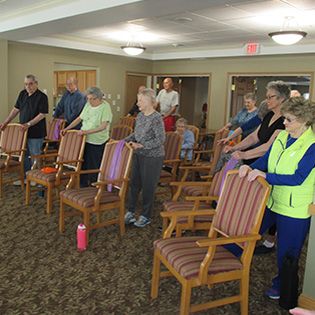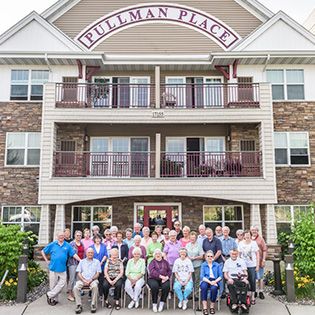This guide to co-op housing attempts to answer your questions regarding ownership, responsibilities and benefits of living in a senior housing cooperative. In the United States, more than 1.5 million families of all income levels live in homes owned and operated through cooperative associations.
A housing cooperative forms when people come together to own and control the buildings in which they live. They form a co-op corporation and pay a monthly amount (called carrying charges) that covers operating expenses. It is the cooperative that owns the building, land and any common areas and the members buy shares in the co-op. Senior housing cooperatives may limit membership on the basis of age. Pullman Place is a 55+ cooperative.
By altering the basic legal and finance structures, many different types of housing cooperatives can be developed.
Pullman Place is a limited equity senior housing cooperative.
The co-op is a legal corporation. Members of the co-op are the people living in the co-op and they run the co-op – from organizing social activities, to maintenance, to handling finances, to landscaping. The members set the by-laws of the co-op and also elect, from among themselves, a board of directors. The board makes sure that things run smoothly and according to the co-op’s bylaws and operating agreements. The board will organize members’ meetings on a regular basis and will usually hire staff to attend to the day-to-day business of the co-op.
Cooperative members each own a cooperative share. Together, the members own 100% of the cooperative and the cooperative owns all of the building, land and any common areas. The right to reside in each specific dwelling unit is allocated solely to a specific cooperative member and governed by that member’s occupancy agreement.
As a member, you own a cooperative share that is the combination of two things:
As a new member buying a cooperative share, you only pay the equity or share price at closing.
The occupancy agreement requires each member to pay only his/her pro-rata share of the budgeted costs of the cooperative. These costs may include taxes, mortgage payments, repairs and maintenance. If the utility costs are not part of the cooperative budget, the member must pay them directly to the utility company. At Pullman Place Cooperative, members pay for electricity and are encouraged to purchase personal contents insurance. Phone, Internet, and DirecTV services are provided through the Cooperative at a discounted rate.
Members can deduct their pro-rata share of the cooperative’s mortgage interest and real estate taxes on their personal state and federal income tax returns. They have the same rights to exemption from capital gains taxation as any other homeowner.
As with any mortgage, as the market value of your cooperative interest increases, you build home equity. At Pullman Place Cooperative, the equity increases at a rate of 1% on the share value each year on October 1st.
Cooperative ownership takes people out of the rental market at what can be the same or slightly lower monthly costs. Members decide whether or not to increase monthly fee based on actual expenses. Members also receive the tax benefits of ownership.









Sign up for our e-newsletter and stay up-to-date on the latest information around our co-op.